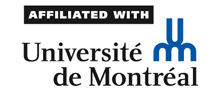By Damien Bol, Postdoctoral fellow, University of Montreal
What is the story?
These last decades, the possibility of changing the electoral system has been brought at the political agenda of many established democracies. In 2011, the Tory-LibDem government organized a referendum on whether to replace the first past the post system (FPTP) used to elect the British House of Commons by an Australian-like alternative voting system (AV). In the 1990s, the Italian government implemented a slightly modified variant of the German mixed-member system (MMP) for the election of the lower house of the national parliament. About 10 years later, the decision was made to turn back to a proportional representation system (PR) with a seat bonus for the largest coalition. During the 2012 presidential election campaign in France, several candidates (among which the current President Hollande) proclaimed their preference in favour of introducing some dose of proportionality in the two-round system (TRS) used for legislative elections.
According to the conventional wisdom, those attempts are changing the electoral system are nothing more than strategies operated by political actors to ensure their re-election. It is often taken for granted that parties support electoral reform because they anticipate seat payoffs from the psychological and mechanical effects of the new electoral system. In a recent article, I show that in such situations, parties are also concerned about values and the possibility of achieving social goals that benefit the entire society.
Electoral reforms in OECD countries
Major electoral reforms are more frequent that what people usually think. By major I mean a reform that breaks with the principle of representation in use to elect the lower house of the national parliament. Many believe that this type of reform never happens, or if it does, it only happens during exceptional historical moments. For example, the decision of the CDU and the SPD to implement a system that combines a pluralitarian and a proportional component to elect the German Bundestag occurred during the reconstruction phase that followed World War II. The pure PR system that was previously used was blamed for having allowed Hitler’s national socialist party to get into the national parliament.
Even during stable periods of the world political history, the possibility of changing the electoral system is frequently brought to the political agenda. After consulting a wide series of historical pieces, I collated 23 “serious” proposals of major electoral reforms in OECD countries from 1961 to 2011 (see Table 1 below). By serious I mean proposals that were at one point on the political agenda of the government because they were drafted by a committee specifically appointed by the government, subject to a referendum, or submitted to parliament by (one of the) government party(ies). Although only 40% of these proposals were ultimately implemented, this number is not insignificant. The electoral system is not as stable as it seems.
Table 1: Major electoral reforms in OECD countries, 1961-2011
Values versus self-interest
How can we explain party support for electoral reform? In systematically assessing the position taken by 115 parties on the proposals reported in Table 1, it appears that the willingness to ensure a re-election is not the only factor at stake. All of these proposals would modify the degree of inclusiveness of elections. Introducing a PR system in the United Kingdom for example, as it was suggested by some of the Labour leaders in 1997, would give a greater representation to ethnic minorities and other underprivileged people. We also know that it would decrease the imbalance between male and female representatives.
One can thus wonder whether parties that usually defend these social groups support electoral reform proposals that go into that direction. The answer is yes, they do. Table 2 reports the standardized coefficient estimates of models predicting party support for the more inclusive electoral system (regardless of whether it is the status-quo or the proposed electoral system) by their expected seat payoffs and by how much they emphasized the political inclusion of these social groups in previous electoral platforms. The results reveal that both factors explain an important part of the story and that both are relevant empirically to understand party support for electoral reform.
Table 2: Coefficient estimates of fixed-effect logit models
Parties do not only behave in their self-interest while it comes to change the electoral system. Regardless of how many seats they might expect to win or to loose, the willingness to remain coherent with their electoral platform is an important factor to understand their support or opposition to a reform proposal. In public debates, there is a tendency to refer to political actors as being machiavellian and driven by a hunger for power. However, it is important not to forget that politicians are also human beings and that their behavioral patterns are complex.
For all detailed analyses, see Bol, Damien (2013). “Electoral Reform, Values and Party Self-interest.” Party Politics, published online.
